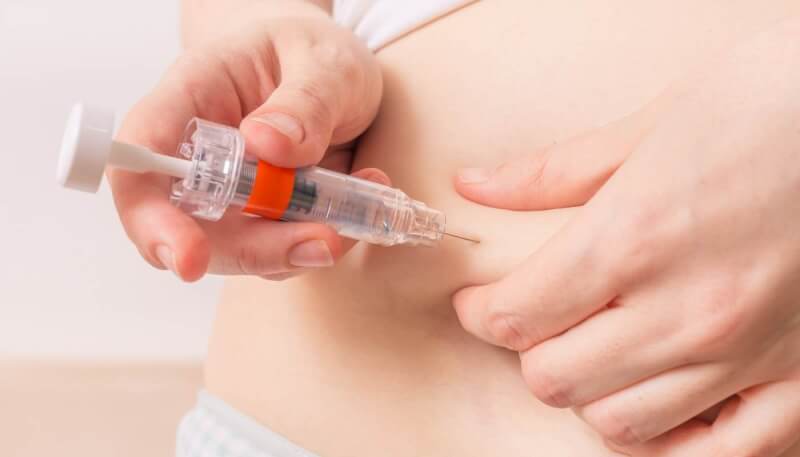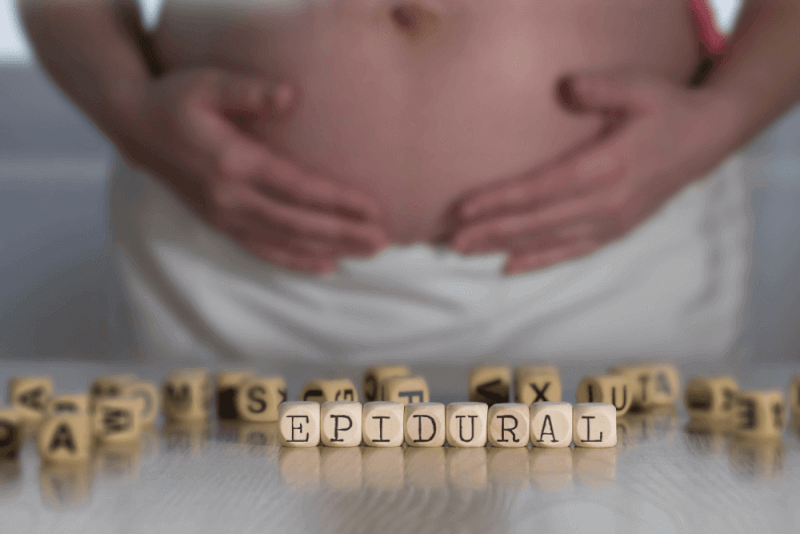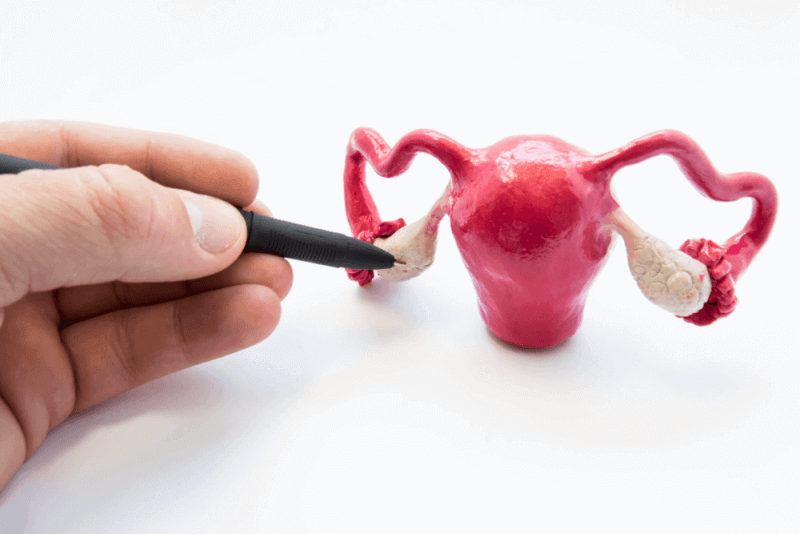What is IVF?
IVF treatment is an effective assisted reproductive technique that has been applied for many years for couples who cannot have children due to reasons such as the man's sperm quality being insufficient, advanced age, etc. Especially due to infertility, IVF is currently one of the most commonly performed treatment methods.
Stages of IVF
In IVF treatment, the woman's eggs and the man's sperm are collected outside the body, and fertilization is achieved after a series of procedures in the laboratory. The stages of the treatment are as follows:
Stage 1 (Preparation Stage)
After the couple decides to undergo IVF and applies to the healthcare institution, tests are conducted to determine whether they are suitable for the treatment.
Stage 2 (Stimulation of the Woman's Eggs)
Under normal conditions, one egg matures in a woman's ovary each month. In IVF treatment, the goal is to produce as many eggs as possible. Small injections and medication are used to support this process. This process is monitored by a doctor and usually continues for 1-2 weeks, during which the effectiveness of the preparation phase is checked.
Stage 3 (Egg Retrieval and Sperm Collection)
In a hospital setting, eggs are retrieved by inserting a needle into the follicles that have been enlarged by ultrasound. Sperm is collected from the man on the same day.
Stage 4 (Fertilization of the Egg by Sperm)
At this stage, the sperm is injected into the egg with a thin needle. After this step, embryos are formed, and they are monitored for 3 to 5 days.
Stage 5 (Embryo Transfer)
In this stage, the embryo is placed into the uterus using a thin cannula.
Stage 6 (Waiting Period and Pregnancy Test)
After all these steps, the waiting period begins, and a pregnancy test is performed after 10-12 days to determine the result.
From the beginning of the treatment to the embryo transfer, the entire process takes about 3 weeks, and the completion of all stages and obtaining the result takes about a month. In some exceptional cases, the 30-day period may be extended.
When is IVF Treatment Performed?
IVF treatment is primarily performed to assist a woman in becoming pregnant. It is used in the treatment of many causes of infertility. The causes of infertility include the following:
- Advanced age of the woman
- Damaged or blocked fallopian tubes (due to pelvic inflammatory disease or previous reproductive surgery)
- Endometriosis
- Low sperm count
- Obstruction in the sperm pathway
- Unexplained infertility
- Polycystic ovary syndrome
Risks of IVF Treatment
IVF treatment is a procedure that requires significant physical, emotional, time, and financial investment. Many people dealing with infertility also experience stress and depression.
Side effects that may occur due to the use of fertility drugs include the following:
- Bloating
- Abdominal pain
- Mood swings
- Bruising
In rare cases, ovarian hyperstimulation syndrome (OHSS) may occur. This condition, also known as OHSS, can range from mild to severe. In severe cases, fluid may need to be drained with a needle, and hospitalization may be required. Symptoms of OHSS include:
- Fluid accumulation in the abdomen and chest
- Abdominal pain
- Bloating
- Rapid weight gain
- Decreased urine output despite high fluid intake
- Nausea
- Vomiting
- Shortness of breath
Research on the relationship between ovulation drugs and cancer has so far concluded that these drugs are not associated with cancer.
Possible side effects of the egg retrieval procedure include:
- Reactions to anesthesia
- Bleeding
- Infection
- Damage to structures surrounding the ovaries, such as the bladder and intestines
Other risks associated with IVF treatment include:
- The possibility of multiple pregnancies when more than one embryo is transferred into the uterus
- Carrying more than one baby at the same time can lead to premature birth and low birth weight.
- Increased risk of miscarriage
Differences Between IVF and Natural Pregnancy
Unlike natural pregnancy, IVF treatment involves the fertilization of the man's sperm and the woman's egg in a laboratory setting. There is no difference between babies born naturally and those born through IVF. Moreover, certain genetic problems that may occur later can be detected during IVF. Therefore, IVF treatment has significant advantages. Additionally, in IVF treatment, medication is administered under the supervision of a doctor to stimulate the woman's eggs, unlike natural pregnancy (except in exceptional cases).
Nutrition During IVF Treatment
To increase the chances of success in IVF treatment, it is important to maintain a weight close to the ideal. For this purpose, dietary support can be obtained before starting the treatment.
- During IVF treatment, it is necessary to consume plenty of fluids. Approximately 2-3 liters of water should be consumed daily.
- During treatment, legumes such as beans and chickpeas should not be absent from the table and should be consumed at least twice a week.
- Maintaining a good level of protein also increases the success of the treatment. Therefore, consuming foods rich in omega-3, protein, and minerals, such as fish, several times a week will also help ensure the success of the treatment.
- When cooking, avoid frying and instead opt for boiling. However, make sure that vegetables and pasta are not boiled for too long.
- During this period, it is important to consume more vegetables rich in folic acid, and nuts such as almonds and hazelnuts, which are rich in healthy fats.
- If you smoke, quit, and avoid environments where smoking occurs.
If the person uses sweeteners instead of sugar, they should also stop using sweeteners during this process.
IVF and Implantation
Perhaps the most challenging part of IVF treatment is the two-week period after embryo transfer, during which it is uncertain whether implantation has occurred. During this time, some physical and emotional changes may occur in women. However, these changes are not definitive proof of implantation. Some people may experience symptoms similar to those of implantation due to psychological effects. Moreover, different symptoms may occur in each woman during the implantation process. Therefore, it is not possible to know for sure whether implantation has occurred until the pregnancy test results are obtained.
Possible symptoms that may occur if implantation occurs after embryo transfer include the following:
- Abdominal pain
- Light bleeding or spotting
- Abdominal cramps
- Fatigue
- Changes in basal body temperature
- Weakness
- Digestive problems
- Frequent urination
- Headache
- Dizziness
When Does Implantation Occur After IVF Transfer?
After embryo transfer in IVF treatment, a period of waiting is required for the embryo to implant in the uterine wall. The waiting period varies between 9 to 11 days. It is crucial to follow the doctor's recommendations during this time to increase the chances of successful implantation.
Reasons for IVF Failure
Even if there are no issues during the stages of IVF treatment, there is always a possibility of an unsuccessful outcome. The reasons for this may not be due to a single factor, and various factors may contribute to the unsuccessful outcome of the treatment.
Factors such as the advanced age of the woman and potential genetic issues in her eggs, the ovaries not responding to the medications during the IVF process, structural abnormalities in the eggs, abnormalities in the man's sperm, the uterine lining being insufficiently thick, not using the prescribed medications properly, and not adhering to post-transfer guidelines can all hinder the success of IVF treatment.
Foods to Avoid During IVF Treatment
Women undergoing IVF treatment need to pay extra attention to their diet. Removing certain foods from the diet during treatment and the waiting period is important for a positive outcome.
During this process, women should completely avoid excessively fatty foods, undercooked or raw foods, foods containing additives, products with caffeine such as tea, chocolate, and coffee, foods with food coloring and artificial sweeteners, and most importantly, smoking and alcohol consumption.
PRP-Supported IVF Treatment
PRP treatment can be described as the application of plasma rich in growth factors and platelets to the organs and tissues for treatment. This method, which has long been used in fields such as plastic surgery, orthopedics, and medical aesthetics to treat various damages and aid in the repair of organs and tissues, involves taking blood from the patient, processing it through a special procedure, and obtaining plasma. This plasma is rich in platelets, whose primary function is blood clotting. The obtained plasma is injected back into the patient. The platelets, with their growth factors, renew the cells.
PRP-supported IVF treatment is applied when the desired success is not achieved after several attempts to achieve pregnancy. This treatment has been used in recent years for issues such as ovarian rejuvenation, infertility, and solving uterine lining problems. This application increases the chances of couples with low fertility potential to have a child. In PRP treatment, the patient's own blood is separated, and the platelet-rich plasma is injected back into the woman's uterus.
IVF and Pregnancy Calculation
IVF pregnancy calculation estimates the development of the baby when pregnancy occurs through IVF. The important date in this calculation is the date of the IVF embryo transfer.
Embryo transfers are usually performed three or five days after egg retrieval and fertilization, using either frozen or fresh embryos. Frozen embryo transfer is also known as FET.
3-Day Embryo Transfer
If there is a three-day IVF transfer, the estimated due date can be calculated by adding 263 days to the transfer date. Alternatively, you can add 266 days (38 weeks) to the transfer date and subtract 3 days.
5-Day Embryo Transfer
If a 5-day embryo transfer is performed, the due date can be calculated by adding 261 days to the transfer date. Alternatively, you can add 266 days to the transfer date and subtract 5 days.
Embryo Transfer Longer than 5 Days
If the embryo transfer is longer than 5 days, the fertilization period should be subtracted from 266, and then the resulting number should be added to the transfer date. This calculation is especially used in egg donation or donor embryo cycles.
If donor eggs are used, the estimated due date is calculated by adding 266 days to the egg retrieval date.
Things to Consider After Embryo Transfer in IVF Treatment
The success of IVF treatment depends on whether the embryo implants in the uterine wall after the embryo transfer. During the implantation process, which is the first step to a successful pregnancy, patients should follow their doctor's recommendations. Additionally, the following general points should be considered during this period:
Medication Use
After embryo transfer, blood thinners and hormone medications are usually used. These medications should be prescribed by the doctor and used exactly as directed. Using medications that are not prescribed by the doctor can lead to the failure of the procedure and negatively affect the patient's overall health.
After embryo transfer, medications containing estrogen and progesterone are usually used. However, the type and dosage of the medications are determined individually for each patient. Additionally, the choice of medication is influenced by whether fresh or frozen embryos are used.
Injections
The injections prescribed after the procedure are progesterone injections. These injections are administered around the abdomen or buttocks. The frequency of administration, type, and dosage of the medication vary depending on the injection site. The purpose of these injections is to increase the level of the progesterone hormone necessary for pregnancy, as vaginally administered hormones may not be sufficient at this stage.
After the injections, patients may experience a slight increase in body temperature. However, if the fever does not subside or other symptoms occur, it is necessary to consult a doctor.
Blood thinners may also be included in the injections administered after the procedure. Using these injections without a prescription can jeopardize the patient's health.
When to Stop Progesterone
The purpose of continuing progesterone use after embryo transfer is to prevent miscarriage and support the continuation of pregnancy. Especially when frozen embryos are used, meticulous application is necessary due to the lack of progesterone production by the ovaries.
Once the placenta has reached sufficient maturity, the ovaries start producing enough progesterone. At this stage, external hormone supplementation is no longer necessary. This usually occurs between the 10th and 12th weeks of pregnancy.
Rest After Embryo Transfer
After embryo transfer, patients should rest for 20 minutes and then be allowed to get up. There is no evidence that long-term rest after the procedure positively affects the success of the treatment. Therefore, it is generally considered sufficient for women to rest for one day after the procedure.
The resting position of the patients during this period does not affect success. However, it is recommended not to lie in a way that puts pressure on the abdomen.
Cramping After Embryo Transfer
Mild and short-term abdominal cramps after the procedure are expected. Therefore, patients should not be concerned. However, if the pain intensifies or if cramps are accompanied by bleeding, nausea, and fever, it is necessary to consult a doctor.
Bleeding After Embryo Transfer
Spotting or light bleeding after the transfer procedure may occur. This may indicate that the embryo is in the process of implanting or it may result from irritation of the uterine lining during the procedure.
On the 6th day after the transfer, the embryo completes the initial implantation process into the uterine lining. Therefore, bleeding or spotting may occur during this period. Implantation bleeding appears as spotting. It is usually mild and short-lived. However, if the blood is bright red, if the amount of bleeding increases, or if the bleeding persists, it is necessary to consult a doctor.
Bathing After Embryo Transfer
Bathing is allowed 2 days after the transfer procedure. However, hot water should be used. Additionally, saunas and steam rooms should be avoided for a while.
Travel After Embryo Transfer
There are no restrictions on travel after embryo transfer. However, it is recommended to rest for one day after the transfer. The mode of transportation used has no observed effect on the success of the treatment. However, during long journeys, it is advisable to take a break every 2-3 hours and walk for 10-15 minutes.
Returning to Work After Embryo Transfer
There are no restrictions on returning to work after resting for one day following embryo transfer. In fact, resuming daily routines as soon as possible can significantly reduce anxiety and stress about pregnancy, thereby increasing the chances of success.
Using the Bathroom After Embryo Transfer
After the procedure, patients should rest in bed for 20-30 minutes and should not get up, even to use the bathroom. If the need to urinate is strong, a bedpan can be used without getting out of bed. After the rest period is over, there are no restrictions on using the bathroom.
Sexual Intercourse After Embryo Transfer
There is no evidence that engaging in sexual intercourse after the procedure has a negative impact on success. However, it is believed that if the uterine wall contracts during intercourse, the chances of embryo implantation may decrease. Therefore, it is recommended to avoid sexual intercourse during the first 3 days after the procedure.
Nutrition After Embryo Transfer
Foods to Avoid
After embryo transfer, women should avoid foods that may cause constipation, such as high-carbohydrate foods and pastries.
Additionally, herbal teas, especially green tea, should be avoided. Herbal teas can increase the likelihood of treatment failure during the IVF process. Herbal teas may contain high levels of caffeine, similar to coffee. Caffeine can increase the risk of treatment failure as well as the risk of miscarriage.
After the transfer procedure, women should also avoid consuming processed meat products, seafood, undercooked meats, and unpasteurized dairy products.
What to Eat for Successful Embryo Implantation
During IVF treatment and after embryo transfer, women should establish a diet rich in fresh fruits and vegetables. In addition, protein-rich foods should be abundantly included in their daily diet. When consuming dairy products, they should opt for low-fat options.








